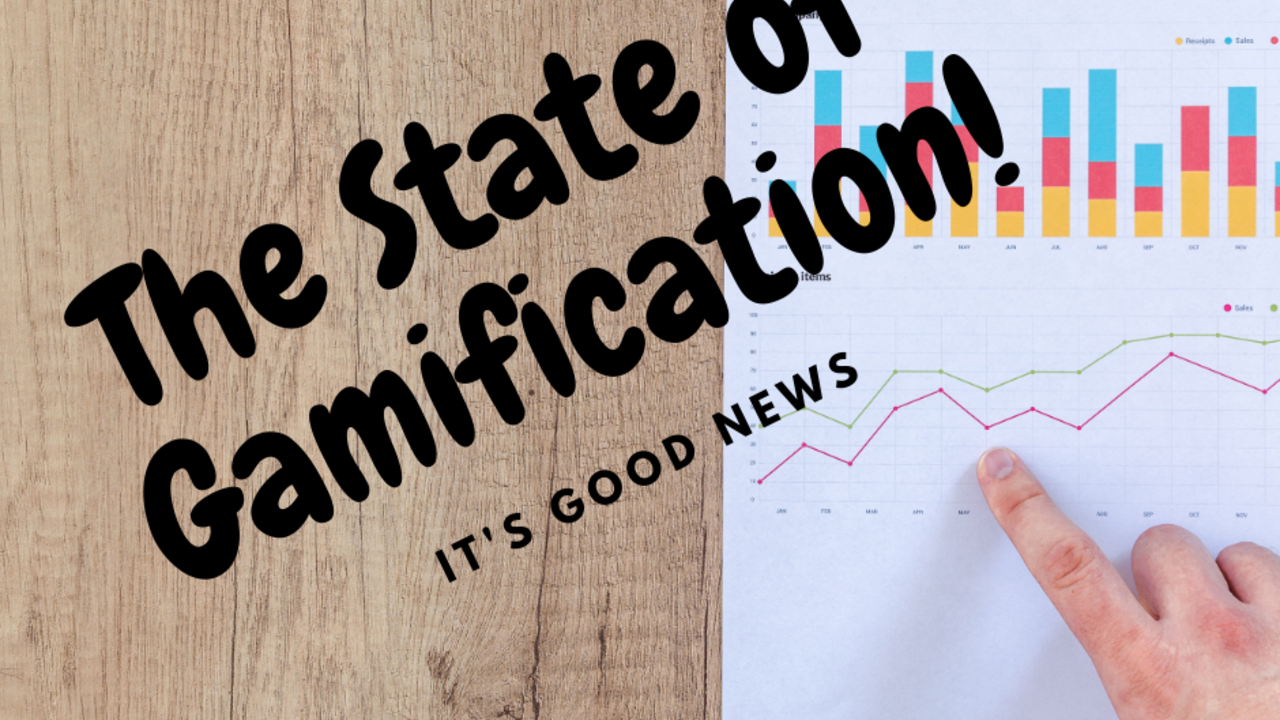
The State of Gamification of Learning
Mar 18, 2020We believe in the benefits of the gamification of learning, but that’s because we’re in the business. But what about gamification from the employees’ or learners’ point of view?
TalentLMS recently conducted their 2019 Gamification of Work Survey, and they discovered some interesting, amazing, and empowering results. At the very least, the Survey shows that gamification in the workplace—and in learning in particular—is increasingly popular and prevalent.
TalentLMS began with 900 US employees. The first question eliminated 42% of the dataset. When asked whether they noticed any gamification in an app or software they use at work, 374 of the respondents replied, “No.” If we assume that the gamification of learning, in this case of eLearning, then there is still a significant need to engage learners through gamification.
From the remaining 526 people, TalentLMS pulled some interesting insights:
- Respondents said gamification made them “feel more productive” (89%) and “happier at work” (88%)
- 33% want more “game-like features” in their training
- 61% of the respondents currently receive training that is gamified in some way (again, room for improvement)
- 83% of those who receive gamified training feel “motivated”
- 89% stated that they would be more productive if their work experience were more gamified
- 78% said a company would be more desirable if it used gamification in the recruiting process
TalentLMS then asked respondents what types of training they would like to be gamified:
- 30% of them ranked corporate compliance training as their first choice
- 18% chose training on products and services
- Followed closely by technical skills development training (16%)
When they dug a little deeper, TalentLMS found some other interesting things. For instance, the majority of people whose training is NOT gamified scored low in motivation. Only 28% of them reported feeling motivated by the learning experience. These folks also ranked their training as “boring” (49%) and “unproductive” (12%).
Contrast that with 83% of those going through a gamified learning program who reported feeling motivated. Interestingly, though, of the employees receiving gamified learning, 13% of them felt the program was boring or unproductive. Yes, similar to the folks not receiving gamified learning, to which we say the program must have been poorly designed.
To this point, when asked what gamified elements they experienced in their training, respondents identified the old and tired PBLs:
- 71% mentioned badges
- 59% mentioned points
- 56% were awarded virtual or physical rewards
- 51% mentioned leaderboards
- 47% mentioned levels
In other words, instructional designers are still not fully implementing gamification, relying on what we call “cosmetic” gamification—just throwing points, badges, and leaderboards at a program and calling it gamified.
It would be interesting to analyze the programs that were perceived as being boring or unproductive. We believe that if the designers and facilitators had had instruction in the proper development and implementation of gamification, they would have gotten better results. This would be a good place to toot our own horn, but we’ll resist.
The 2019 Gamification at Work Survey not only reveals the benefits of gamifying learning experiences, but it also surfaces the need for expanding gamification efforts and improving the process of gamifying learning. With satisfaction and productivity rates in the high 80% range, the companies employing the 42% who are not experiencing gamification at work are missing out.
Imagine how much more successful our learning programs would be, how productive our workforce would be, and the levels of work satisfaction if the (good) gamification of learning were the norm.
Don't miss a beat!
New moves, motivation, and classes delivered to your inbox.
We hate SPAM. We will never sell your information, for any reason.
